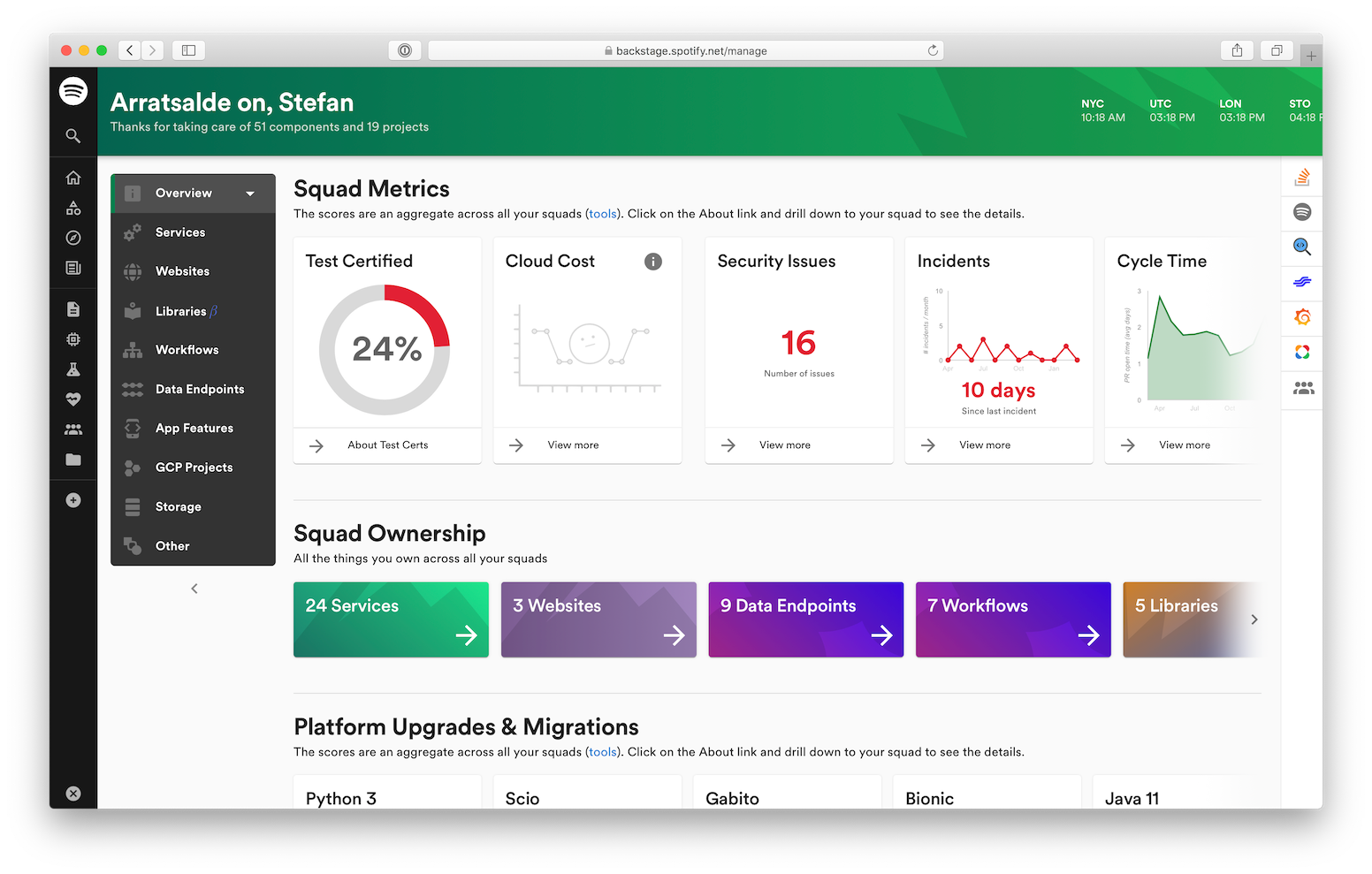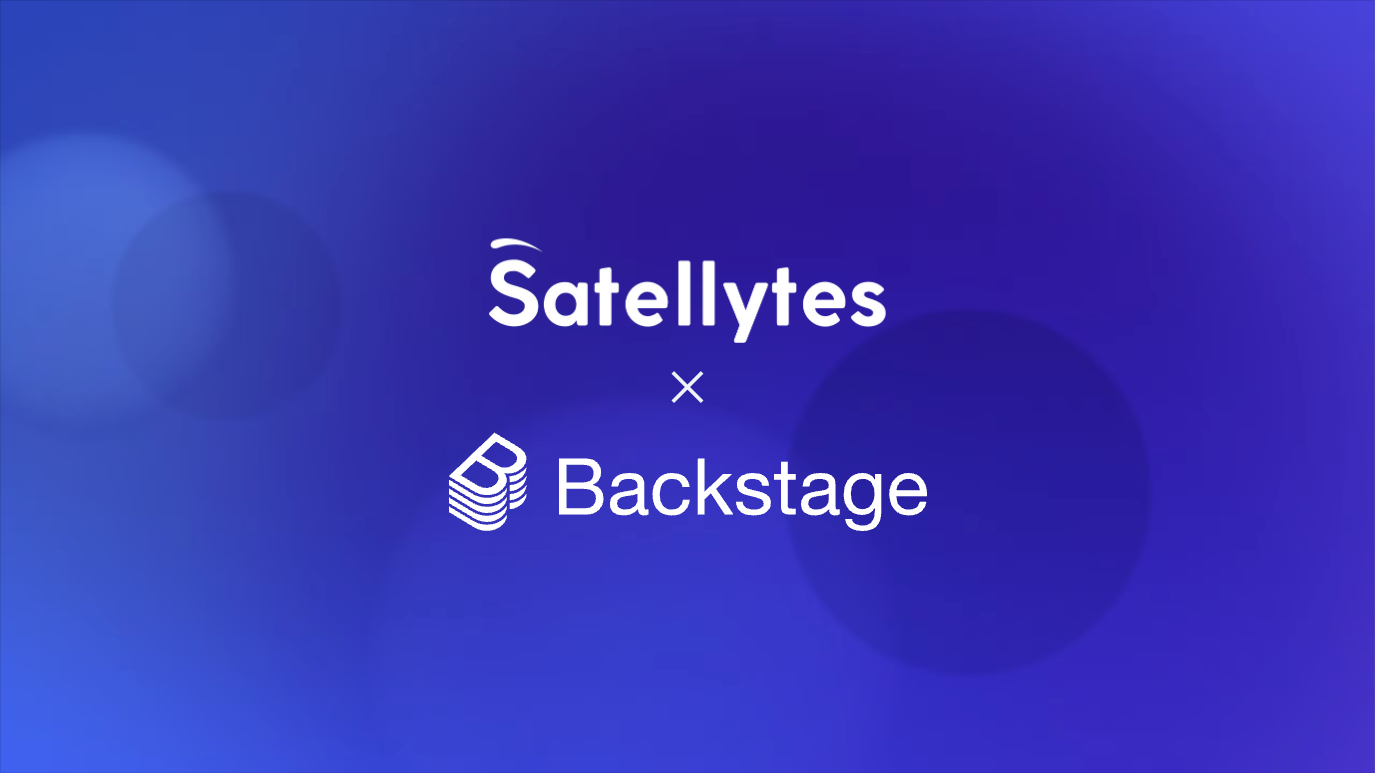Backstage – The Developer Portal Framework for Optimizing Your Development Processes
In the fast-paced world of software development, managing multiple projects, tools, and systems can be overwhelming. The rising demands from regulatory requirements, shareholders, and customers only add to the complexity. Enter Backstage – an open-source developer portal framework designed by Spotify to bring clarity and efficiency to your development workflows.
What are Developer Portals?
In today's world, the demands on software are continuously increasing, whether due to regulatory requirements, shareholder expectations, or the more demanding needs of customers. With these rising demands, the complexity of software systems to be developed also grows. Additionally, more tools are being used during development and operation, such as cloud services, development pipelines, or telemetry software.
The rise of DevOps and the spread of microservice architecture have led to individual teams managing multiple projects simultaneously. Particularly in large companies, this results in a multitude of requirements, tools, and systems that are difficult to oversee. To address these challenges, developer portals were developed.
Developer portals provide a central point of contact for developers to make their work more efficient. They enable self-service functions where developers can meet their own needs without relying on external help. Additionally, they bring clarity to development and operational processes by consolidating all relevant information in one place. This standardizes the use of different tools and systems, creating a consistent development environment.
What is Backstage?
Backstage is an open-source developer portal framework developed by Spotify to manage the complexity of modern software development. It offers a central ecosystem that helps developers keep track of their projects, tools, and systems.

What are the Core Features of Backstage?
The Backstage Software Catalog is a central system that manages the ownership and metadata of all software components in the ecosystem (services, websites, libraries, data pipelines, etc.).
Software Templates are reusable templates consisting of parameters used in defined actions to perform desired procedures.
TechDocs offers a unified access to all documentation of the software catalog entries.
The Backstage Search allows finding the right information across all content of the developer portal.
Backstage provides a large ecosystem of existing plugins (both free and paid) to extend the developer portal with necessary features. This includes integration with various source code management systems (Azure DevOps, Bitbucket, GitHub, Git), pipelines, cloud providers, monitoring tools, or entirely new functionalities like AI assistants.
Backstage is not a SaaS solution but an open-source framework, a community, and a methodology for developer portals. It can be cloned from the repository and customized to the organization's needs, including appearance, system integration, and functionality extensions through (self-developed) plugins.
Why should companies use Backstage?
Below is a consideration of the main advantages and potential disadvantages of Backstage. This overview should help better understand the benefits and challenges of this platform.
Advantages
Efficiency Increase: By centralizing and automating many processes, developers can work more efficiently and focus on their core tasks.
Transparency: A central place for all projects, tools, and documentation creates transparency and simplifies the management of complex systems.
Scalability: Backstage can be easily adapted and scaled to the specific needs and infrastructure of a company.
Cost Reduction: By reducing redundant tools and processes, companies can lower operating costs.
Collaboration: Backstage promotes collaboration between teams by providing a unified platform for knowledge sharing and resource utilization.
Security: Centralized management and monitoring of projects and tools enhance security and minimize risks.
Innovation: With a central portal tailored to the specific needs of your company, teams can respond faster to market changes and develop innovative solutions.
Disadvantages
Complexity and Customization Effort: Implementing and customizing Backstage can be complex and time-consuming, especially for companies without extensive developer resources.
Maintenance: Since Backstage is not a SaaS solution but an open-source platform, companies must handle maintenance, updates, and security measures themselves, requiring additional resources.
Integration Effort: Integrating Backstage into existing systems and workflows may require additional effort.
Concrete Use Cases for Backstage
The following are concrete use cases for using Backstage, illustrating the diverse applications and benefits of the developer portal framework.
Onboarding New Developers: New team members can quickly access all necessary tools, documentation, and resources with Backstage, significantly speeding up the onboarding process.
Managing Microservices: Backstage enables a central overview and management of all microservices, making it easier for teams to keep track and implement changes more efficiently.
Creating and Managing CI/CD Pipelines: With Backstage, CI/CD pipelines can be created, monitored, and managed more easily, accelerating development and deployment processes.
Single-Pane-of-Glass: Backstage offers a unified user interface that brings together all essential tools and information, allowing developers to work more efficiently and respond to issues faster.
Market Comparison
Below is a comparison table listing the key features and functionalities of Backstage compared to other developer portal solutions like Roadie, Humanitec, Port, and Atlassian Compass.

Backstage offers several advantages over Roadie, Humanitec, Port, and Compass:
Open Source: Backstage is an open and free open-source platform that allows developers to customize the code to their needs.
Customizability: Backstage offers high flexibility and customizability, enabling companies to create tailored solutions.
Strong Community: A strong community supports the continuous development and improvement of Backstage.
Extensive Plugin Ecosystem: Backstage has a large ecosystem of plugins, allowing the platform to be extended with additional features.
Single-Pane-of-Glass: Backstage provides a unified user interface that consolidates all essential tools and information, enhancing efficiency and responsiveness.
Summary
Backstage is a powerful developer portal framework specifically designed to manage the complexity of modern software development. With its extensive core features and the ability to be flexibly adapted to the individual needs of a company, Backstage offers a central platform that promotes efficiency, transparency, and innovation. The integration of proven technologies and an active plugin ecosystem allows almost any conceivable solution to be implemented directly in the portal and seamlessly integrated into existing workflows.
Compared to other developer portals like Roadie, Humanitec, Port, and Compass, Backstage offers numerous advantages, including high flexibility, strong community support, and an extensive plugin ecosystem. These features make Backstage the ideal choice for companies seeking a tailored and efficient solution for their development processes.
Our Expertise
Our company is experienced in creating customized solutions for Backstage. Whether it's setup, customization, or developing new plugins – we are your partner for the successful implementation of a developer portal that meets your specific requirements. Let's optimize your development processes together and enhance the efficiency of your team. Contact us for individualized consultation and learn how we can help you get the most out of Backstage.
For more information, visit backstage.io.
